A group of public officials and advocates joined the Friends of the Brooklyn Queens Connector (BQX) today to unveil the inaugural prototype of the streetcar proposed to run between Astoria and Sunset Park. First backed by Mayor Bill de Blasio in February 2016, the BQX project, expected to cost $2.5 billion, would connect Brooklyn and Queens along the East River. Despite significant setbacks, including a bleak assessment about the finances and logistics of the project from Deputy Mayor Alicia Glen in April, BQX supporters are urging the de Blasio administration to make the project a priority during his second term.
The prototype was unveiled at the Brooklyn Navy Yard, one of the potential stops along the BQX route. According to a press release from the Friends of the BQX, the light rail would serve more than 400,000 New Yorkers who live along the proposed corridor and 300,000 who work near the routes, in neighborhoods like the Navy Yard, Industry City and Long Island City.
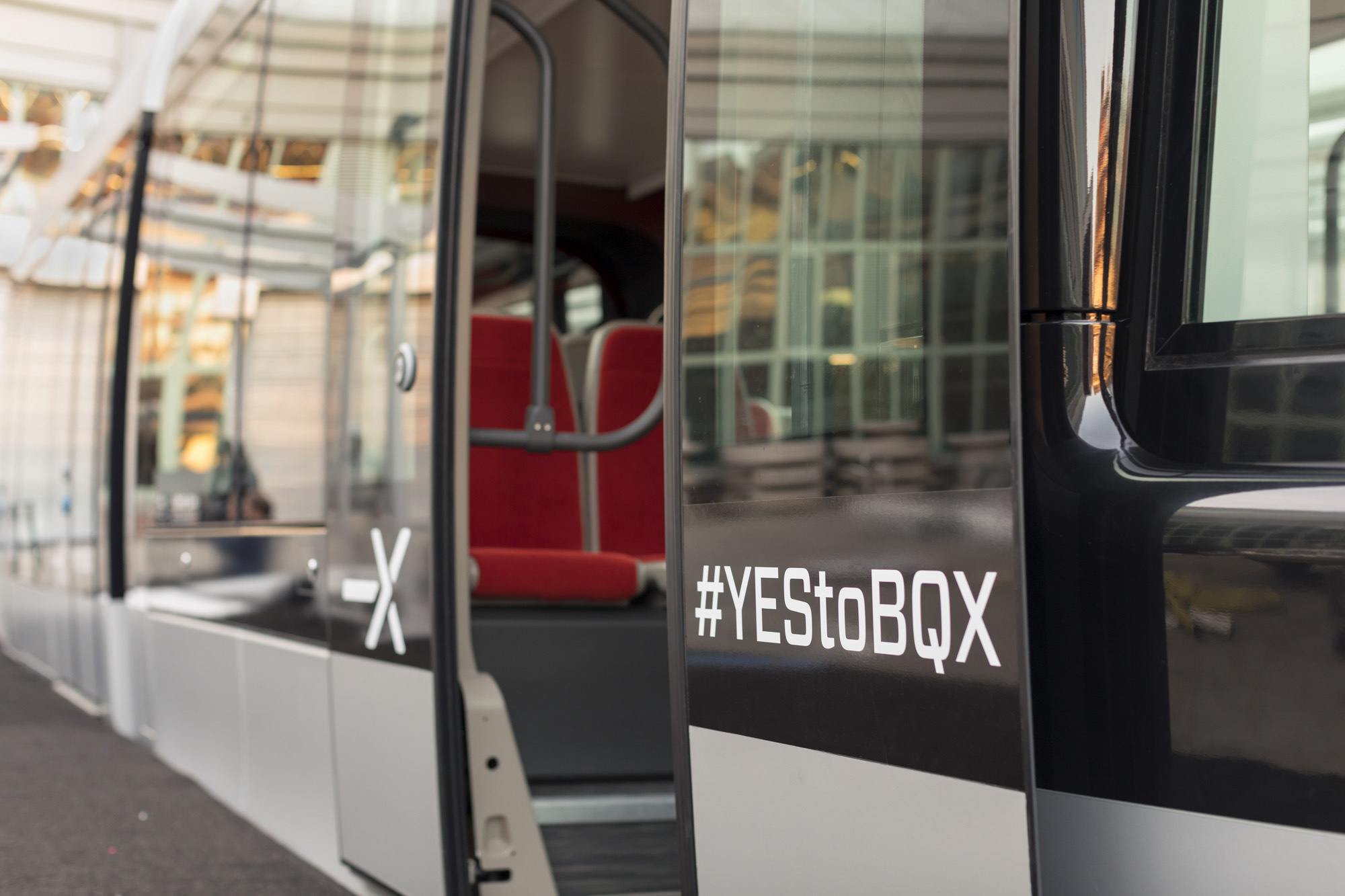
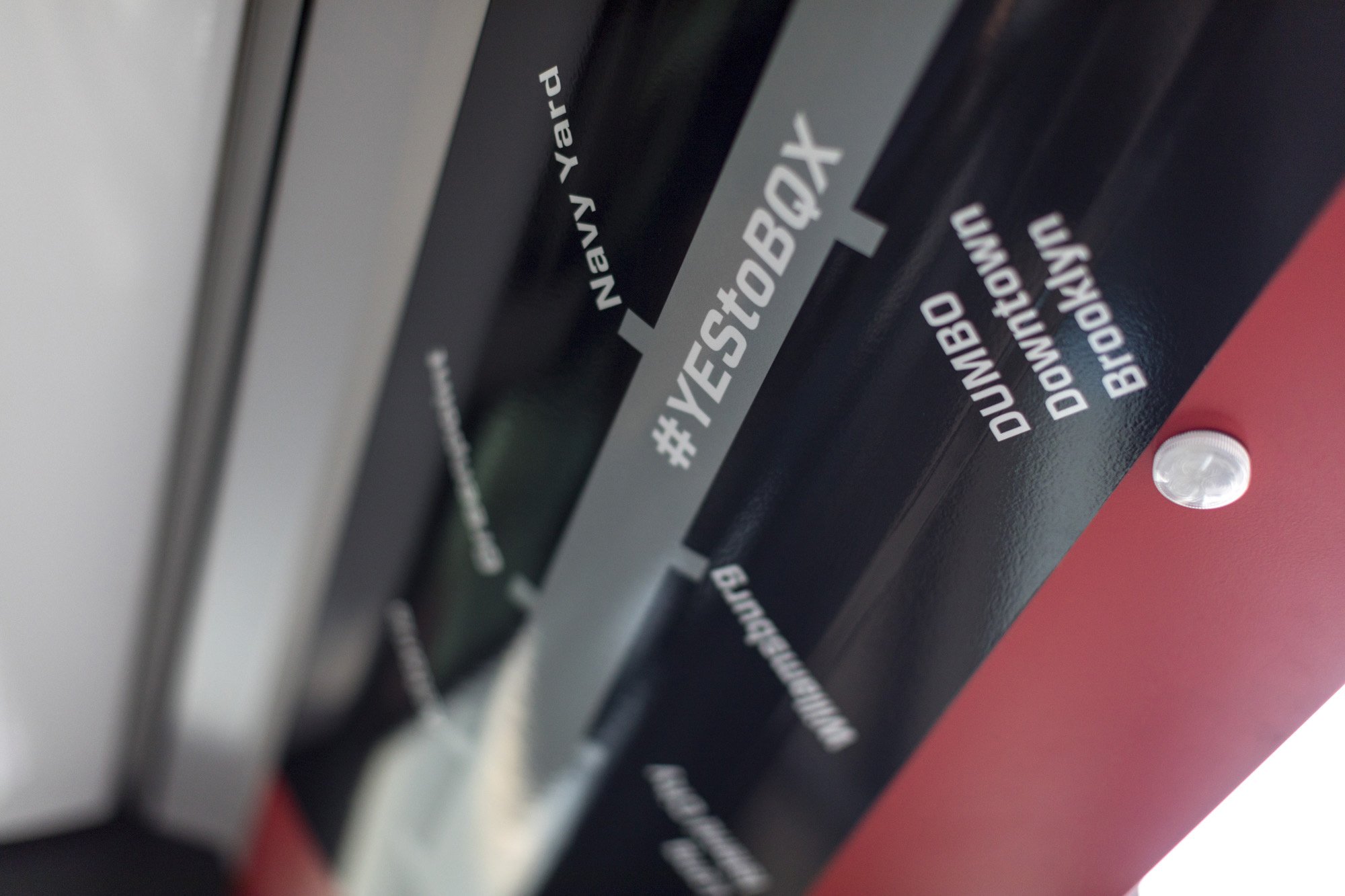
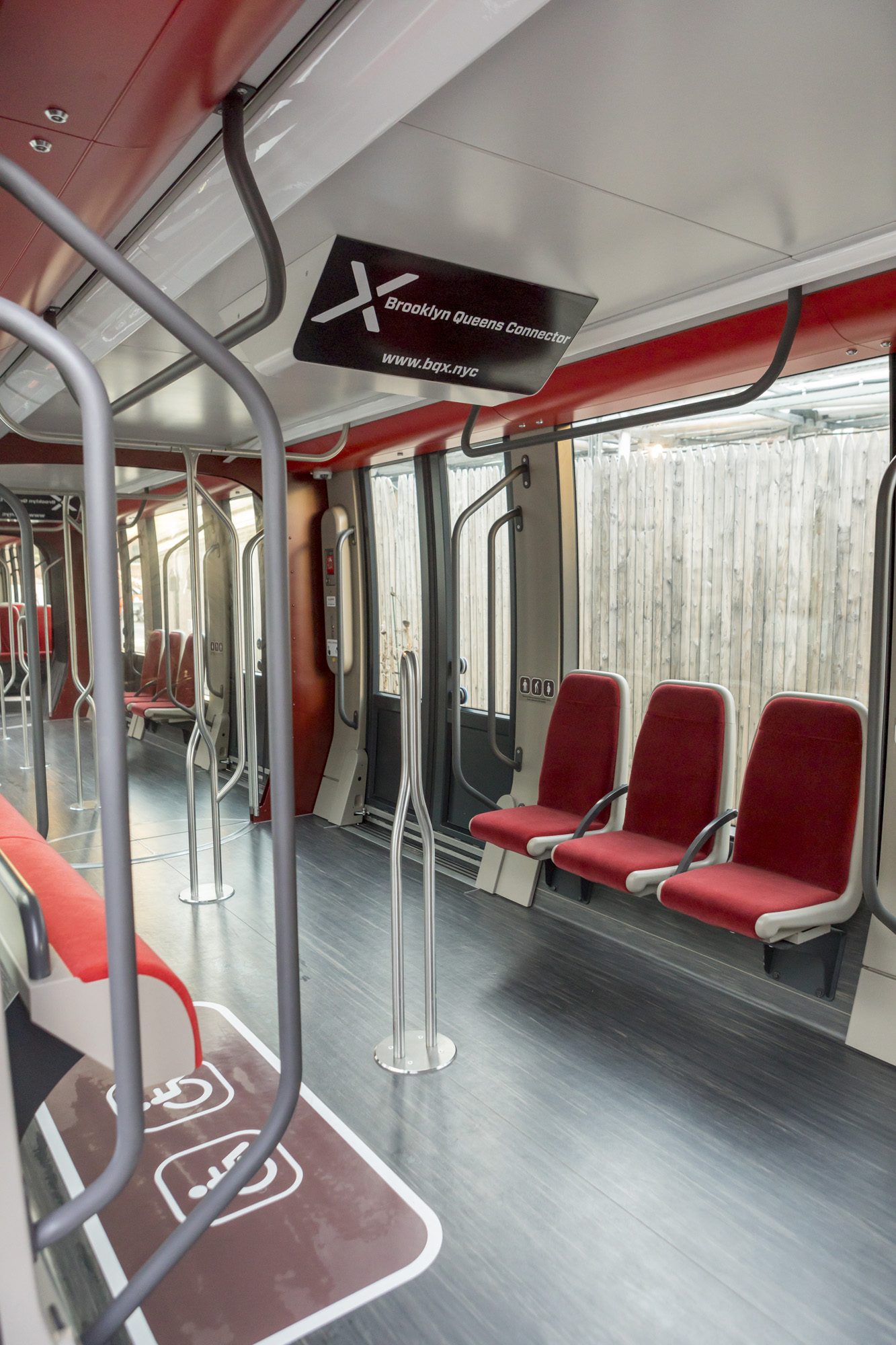
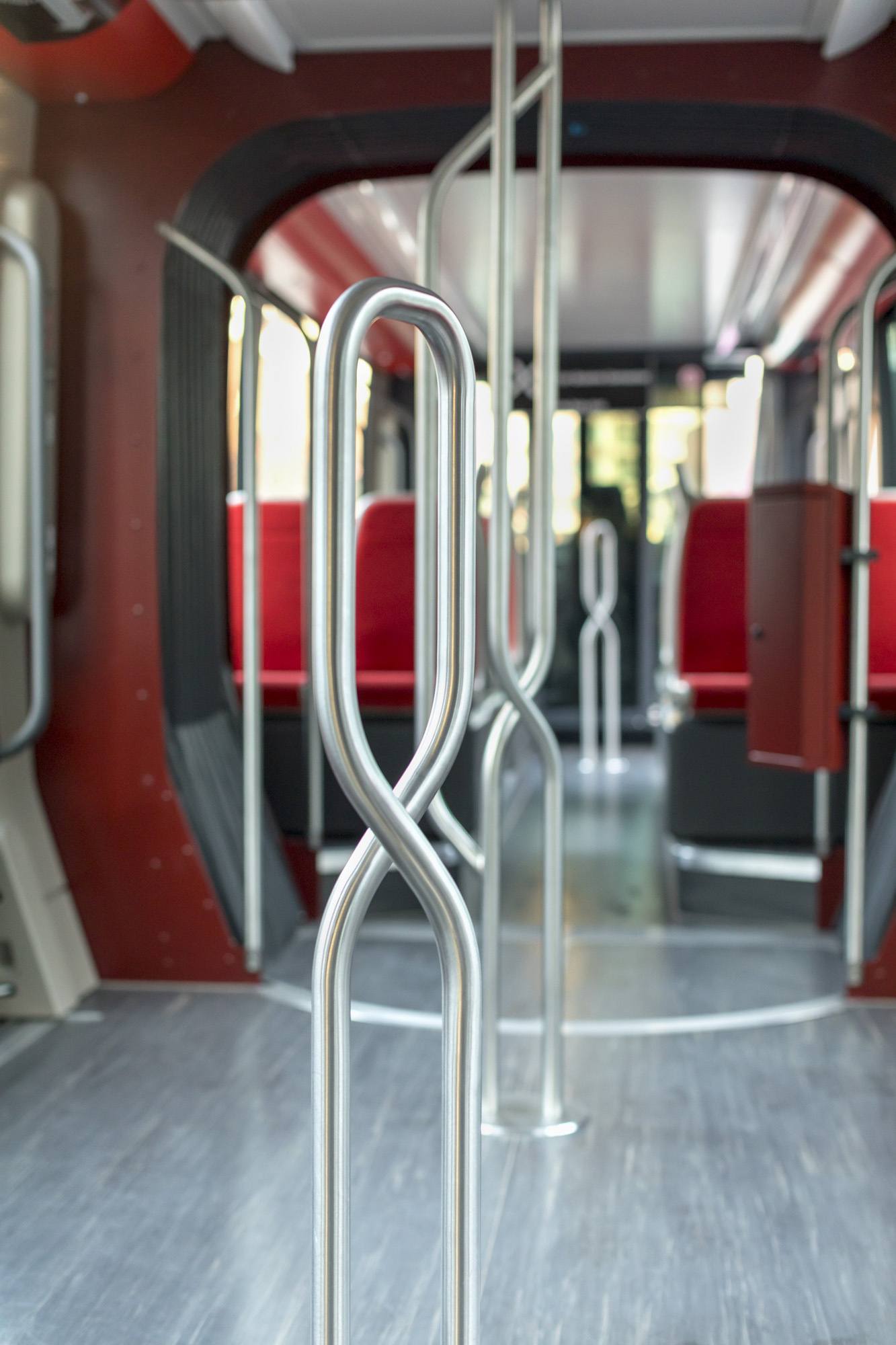
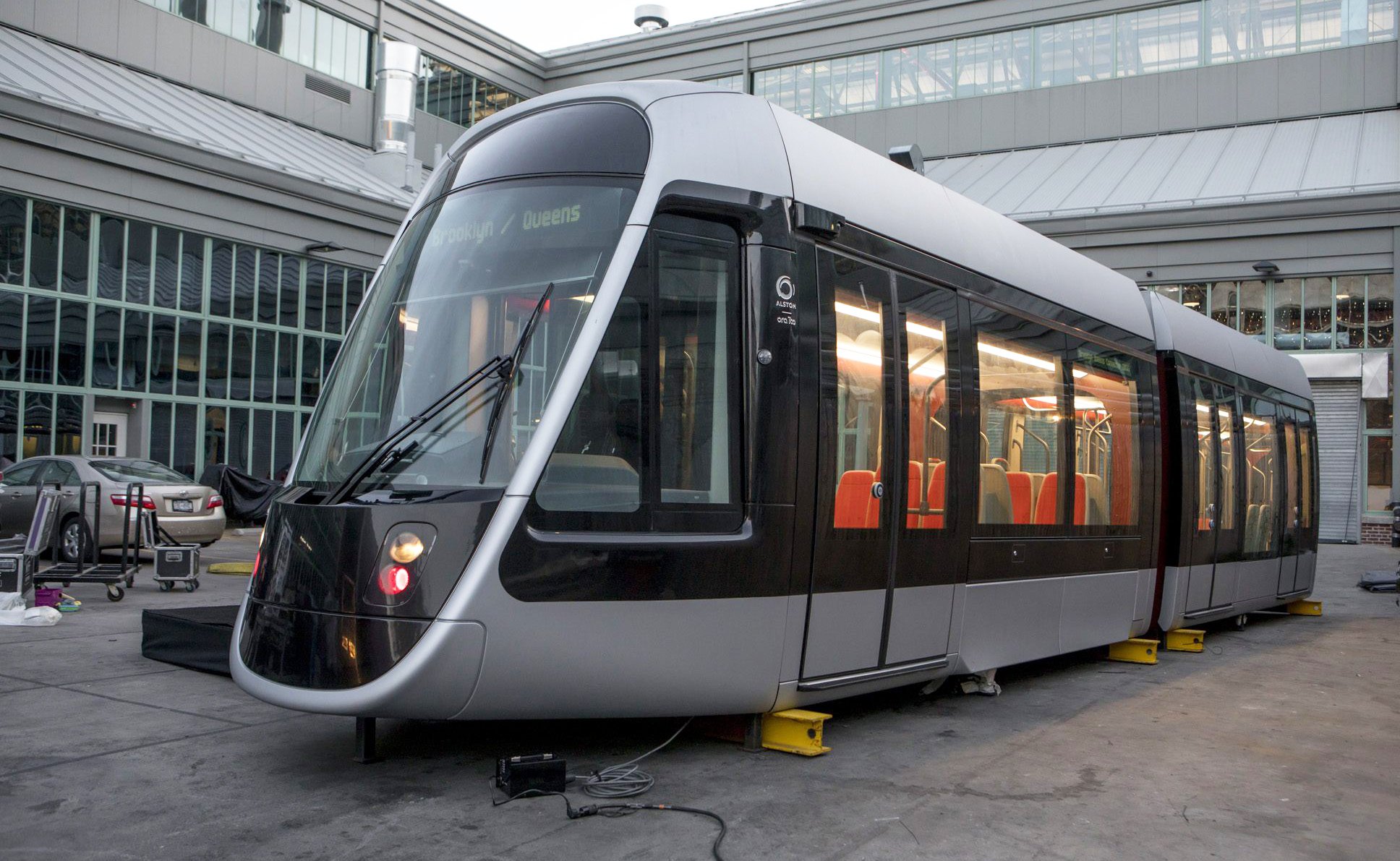
Measuring at 46 feet long and 8.7 feet wide, the prototype, manufactured by French firm Alstom, contains two cars, including the driver cab. The proposed light rail will board at street-level for those with mobility difficulties, run at higher average speeds than the MTA buses and feature higher capacity cars.
Ya-Ting Liu, the executive director of Friends of the BQX, said the new prototype provides New Yorkers the “first real taste of what the BQX would look and feel like.” She added, “It’s clear: now is the moment to move forward with this transformative project to connect hundreds of thousands of New Yorkers, including over 40,000 public housing residents, to jobs, education, healthcare and recreation along the route. Today we can start to imagine what’s possible, and now it’s time for the city to make this a reality.”
The BQX project is currently undergoing a feasibility study to examine the system’s potential routes, as well as funding logistics. While the project was endorsed most recently by the Transport Workers Union and has the support of elected officials and transit and environmental advocates, funding for the project remains up in the air. A lengthy approval process remains for the BQX, but construction is expected to begin 2019, with service starting in 2024.


